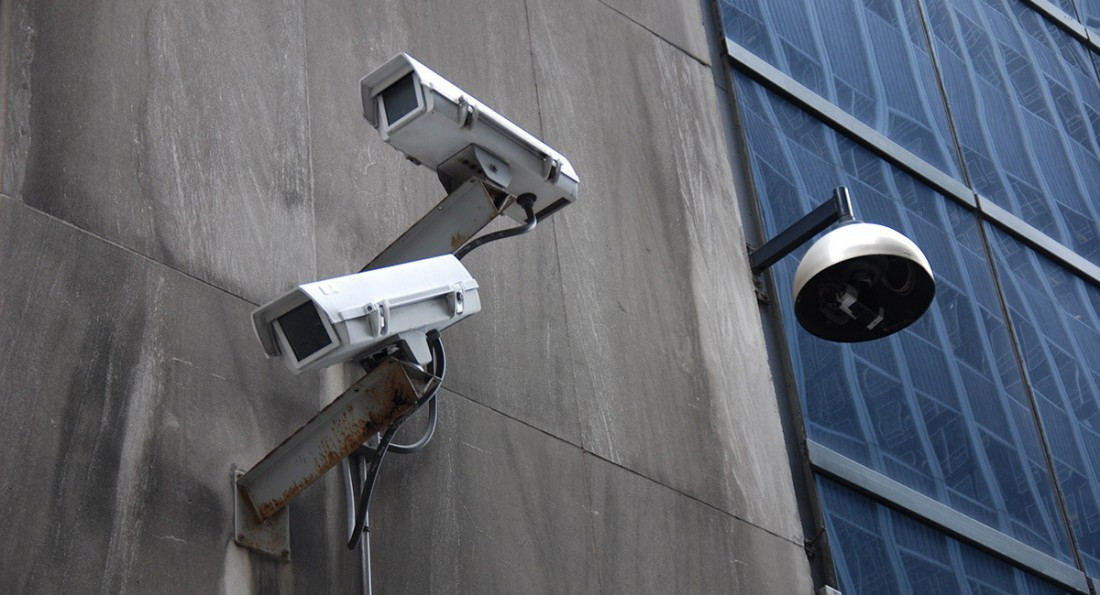Unlawful interception?
Canada and the “Five Eyes” network expanding at alarming rate
Three weeks ago, I gave an overview of the current state of Canada's surveillance state: that is, our massively expanded spying institutions since 9/11, and their slow creep away from concerns about threats to national security, to a narrowing focus on antisystemic movements and environmental groups. Some of that attention has even been directed at energy and mining sectors in foreign nations such as Brazil.
As an increasing number of surveillance revelations pour in, I may have to write about this topic more frequently than every three weeks.
But I need to devote some time here to counteract a common criticism of these surveillance stories and of their reporting by prominent journalists like Glenn Greenwald, formerly of the Guardian. Many like myself view these tales of government power with great alarm, yet their critics nonchalantly dismiss them with phrases like “There’s nothing new here!” or “Of course governments spy!” and “Were you seriously naive enough to believe governments didn't spy on other countries?”
Of course not.
The alarming thing here is not simply that the United States is tapping the mobile phone of the German Chancellor. It is the subversion of encryption practices, the complicity of major internet companies in bulk information collection, the threat of prosecution for revealing the NSA's involvement with your company and widespread economic espionage at a time when Western governments dubiously claim surveillance protects us from “threats to national security.”
Most importantly, it is the collection of metadata, private phone calls and emails from ordinary citizens.
Last week saw pieces of the NSA’s global surveillance paradigm topple like dominoes. It was revealed that, in one month, over 60 million phone calls were monitored in Spain, 70 million in France (an average of 3 million per day), and 46 million Italian phone calls including those from inside the Vatican.
This raises an important question: in what world does the collection of 176 million phone calls from three allied nations, in one month, have to do with national security?
Did the Spanish, French and Italian citizens constitute some sort of imminent threat to the safety of the United States? Did radical factions of Al'Qeada infiltrate the Vatican? And, did that surveillance, as hardline US politicians would profess, save countless lives?
One cannot possibly fathom how the collection of this information is done for the safety of the greater public.
Given these circumstances, what is Canada's role in the vast surveillance network? If the Spanish government is willing to help the NSA collect 60 million phone calls every month, to what lengths might Stephen Harper be willing to go?
Right now, the people who run our surveillance programs insist adamantly that no Canadian laws are being broken and that we have what is called “independent oversight.” It may be that our laws aren't being broken, just stepped around lightly.
One thing is clear from the exponential expansion of surveillance institutions in Western governments since 9/11: they have become their own self-serving, autonomous fiefdoms within which any and all pieces of information travelling down any fibre optic cable is up for the taking. Yet the threat of actual terrorism has not risen in the past decade, so what are all these extra resources for?
It is not beyond the realm of possibility that our surveillance institutions have decided to expand their spheres of influence to include absolutely all data exchanged between regular people. In the interest of self-preservation–and in fear of the ‘soft on terrorism’ label–our most secretive government divisions have been permitted to grow and flourish.
The current trend is to collect-it-all, and Canada is constructing a new $1 billion facility for that purpose. Do we really trust CSEC and CSIS–two institutions of which so little is actually known–to always be right? To never break laws? To have our best interests, and not those of the state, in mind?
Most recently, the CSIS watchdog released a report damning the agency's behaviour for providing incorrect and exaggerated information on a man named Abousfian Abdelrazi. He was imprisoned in Sudan, interrogated by CSIS and later put on a no-fly list by the United Nations, hung out to dry by the Canadian Government. All the while, no evidence existed proving that Abdelrazik was a terrorist.
Jim Judd, director of CSIS from 2004 to 2009, was quoted in a WikiLeaks cable lamenting Canada’s legal system which holds CSIS “in knots”, and railed against Canadians who hold an “Alice in Wonderland” view of the world. Yet, remarkably, with all those pesky legal limitations, Canada has somehow managed to escape even a single terrorist attack since the rapid expansion of our surveillance and cryptonic agencies began.
Perhaps that is because we share so much information with our “Five Eyes” partners including the United States, Australia, the United Kingdom and New Zealand. Perhaps it is because we allowed the NSA to re-write an encryption standard. But until more light is cast on the dark secrets of CSEC and CSIS, I will prefer to take the “Alice in Wonderland” view that the people of Spain, France and Italy are not terrorists.
Graham Hnatiuk is a political writer, musician and artist.
Published in Volume 68, Number 10 of The Uniter (November 6, 2013)







